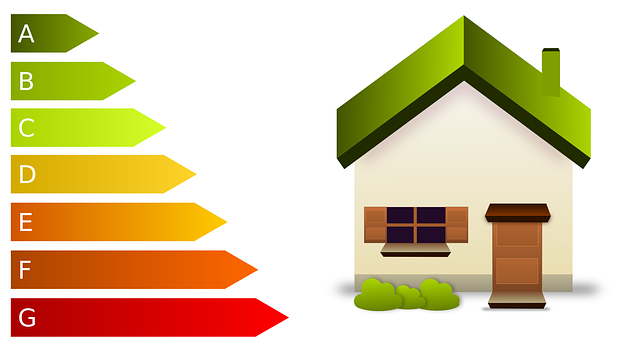
When it comes to fuel tanks, it’s essential to make sure they are always in good condition. It is necessary for safety reasons, but it can also help improve fuel efficiency. Fuel tank testing is a process used to determine the condition of a fuel tank. This can be done in several ways, depending on the type of fuel tank and the level of inspection required.
What Is Fuel Tank Testing?
Fuel tank testing is the process of inspecting a fuel tank to determine its condition. This can be done in several ways, depending on the type of fuel tank and the level of inspection required.
This process is important for safety reasons, as well as to improve fuel efficiency. By ensuring that your fuel tanks are always in good condition, you can help to keep your vehicles running smoothly.
How Are Fuel Tanks Tested?
There are a variety of ways that fuel tanks can be tested. The most common approach is to use a visual inspection, which can help to identify damage or leaks.
However, more detailed inspections may be required to determine the overall condition of the fuel tank.
One standard test is the hydrostatic test. This involves filling the fuel tank with water and measuring the pressure it can withstand. This can help to identify any weak spots in the tank.
Another common test is the vacuum test. This measures how much air the fuel tank can hold and can help to identify any leaks in the system.
Both of these tests are used to help ensure the safety of drivers and passengers. By ensuring that your fuel tanks are always in good condition, you can help to keep your vehicles running smoothly.
Reasons Fuel Tanks Need to Be Regularly Inspected
There are several reasons why fuel tank inspection is important. Some of the top reasons include:
1. To Ensure Safety
By ensuring that your fuel tanks are always in good condition, you can help to keep your vehicles running smoothly. This is essential for safety reasons, as fuel tanks can pose a danger if they are not in good condition.
2. To Improve Fuel Efficiency
A fuel tank in poor condition can lead to decreased fuel efficiency. By regularly inspecting your fuel tanks, you can help to ensure that they are always working at their best.
3. To Detect Leaks
Leaks in a fuel tank can be dangerous and decrease fuel efficiency. By conducting regular inspections, you can help to identify any fuel tank problems early on.
4. To Check the Age of Fuel Tanks
Fuel tanks should be replaced at regular intervals, depending on their condition. By performing fuel tank inspections, you can help to determine whether or not fuel tanks are still safe and working correctly.
How often should fuel tanks be inspected?
It’s essential to conduct fuel tank inspections regularly. As fuel tanks age, they can degrade and pose a safety risk. A fuel tank inspection should be completed at least once a year to ensure safe fuel tanks.
If you suspect that your fuel tank is leaking or has any other condition problems, it’s best to have it inspected immediately.
It’s also important to keep fuel tank inspections in mind if you are transporting fuel. One should transport fuel in secure tanks that do not pose a safety risk.
If fuel tanks are not inspected regularly, they may become unsafe and lead to fuel leakage or fuel tank ruptures.
How can you minimize the risk of fuel tank problems?
You can take several precautions to help minimize the risk of fuel tank problems. Some of the top tips include:
Regular fuel tank inspections
It’s important to conduct fuel tank inspections regularly. As fuel tanks age, they can degrade and pose a safety risk. A fuel tank inspection should be completed at least once a year to ensure that fuel tanks remain safe.
Keep fuel tanks clean.
Make sure to keep your fuel tanks clean and free of debris. This can help to minimize the risk of fuel tank problems.
Avoid overfilling fuel tanks.
Overfilling fuel tanks can increase the risk of leaks or other problems. Make sure not to fill your fuel tanks beyond the fuel pump nozzle.
Use fuel system cleaners.
If you suspect that your fuel tank is leaking or has any other condition problems, it’s best to have it inspected immediately. You can help prevent fuel tank issues by using fuel system cleaners, which can help clean fuel deposits and minimize leaks.
Transport fuel is secure tanks.
One should transport fuel-insecure fuel tanks that do not pose a safety risk. If fuel tanks are not inspected regularly, they may become unsafe and lead to fuel leakage or fuel tank ruptures.
How Fuel Testing Is Done
Fuel testing can be performed in several ways, depending on the type of fuel tank being tested and the level of fuel tank inspection required.
Catalytic Fuel Testers
A catalytic fuel tester allows fuel users to test fuel quality in terms of its ability to burn efficiently. Truck drivers typically use these devices to ensure their fuel will work well with their vehicles.
Catalytic fuel testers help you determine fuel quality and fuel efficiency.
Portable Fuel Testers
A fuel test can be done on a wide range of fuel types, from gasoline to diesel fuel. To ensure the accuracy of results, it’s best to use a testing device specifically designed for the fuel type being tested. As such, portable fuel testers are available for a wide range of fuel types.
Fuel Tank Testing Accessories
Several fuel tank inspection tools are available and designed to help make fuel inspections quick and easy. These fuel tester kits typically contain the fuel tester device itself, along with fuel testing accessories needed for fuel tank testing.
Fuel tank inspection tips
To ensure fuel tanks are in good condition, there are several fuel tank inspections that one should conduct regularly:
Visual Fuel Tank Inspections
The first fuel tank inspection to conduct is a visual fuel tank inspection. This will help you determine the fuel level and any fuel tank problems, such as fuel leaks or spills.
Liquid Fuel Level Inspection
A fuel tank inspection should also include a liquid fuel level inspection. This can help you determine the fuel quality and any water in the fuel tank that may lead to fuel system problems.
Solid Particles Fuel Test
A solid particles fuel test can also help fuel users determine fuel quality and check for fuel tank problems. To do this, fuel testers may need to be used in conjunction with the fuel test kit.
Specialized Fuel Test Accessories
A fuel inspection can include specialized fuel tank testing equipment designed for specific fuel types. As such, it’s important to use fuel testers that are designed for the fuel type you’re testing, such as diesel fuel testers.
Fuel Tank Inspections by Professionals
If fuel tanks do not pass fuel inspections, it’s best to inspect them by experienced fuel tank inspection professionals. These fuel tank inspectors can perform detailed tests on fuel tanks and efficiently provide results.
How Fuel Tank Inspections Can Help Improve Fuel Efficiency
Fuel efficiency is a necessary fuel need that drivers should pay close attention to, significantly impacting fuel costs and overall fuel consumption. This is why it’s essential to conduct fuel tank inspections regularly.
Quality engine
Regularly performing fuel tank inspections will ensure your vehicle’s fuel tank is in good condition, thus allowing fuel to pass through the fuel system efficiently.
This can help you ensure fuel reaches your engine’s fuel injectors quickly and without resistance, helping to improve fuel efficiency.
Low fuel consumption
Fuel tank inspections are also important because they help you manage fuel costs. If fuel tanks are not regularly inspected, fuel leaks or fuel tank damage may go unnoticed.
This can lead to fuel tanks being filled up more often, which will lead to decreased fuel economy and increased fuel consumption.
Low fuel costs
Fuel tank inspections are also recommended for fuel users who want to reduce their fuel costs as much as possible. If fuel tanks are damaged, the potential damage may not be visible.
One should perform fuel tank inspections to prevent fuel leaks or tank corrosion from going undetected, leading to fuel system problems that may increase fuel consumption.
Conclusion
In a nutshell, fuel tank inspections are necessary to ensure fuel tanks are in good condition, preventing fuel costs from rising. Contact industry professionals today to get started to learn more about fuel tank testing equipment.



